This Event Has Passed
Sign up to get notified for future events!

Sign up to get notified for future events!
The skyscraper, more than any other building type, gives American cities their distinctive character. During this week-long workshop participants will investigate the skyscraper as a physical and cultural construct. By examining tall buildings in Chicago—home to some of the world’s earliest skyscrapers—the workshop will explore how to use all buildings as primary-source teaching tools.


Skyscrapers will serve as a lens for studying innovation, urbanization, segregation, labor, gender and civic identity. We will address such questions as: How did the rise of the skyscraper stimulate and reflect changes in American life? and What do these developments indicate about the future of countries building skyscrapers in large numbers today?


Landmarks of American History and Culture workshops give K-12 educators a chance to intensively study and discuss important topics in American history and culture, supplemented by in-person experiences at significant historical and cultural sites.

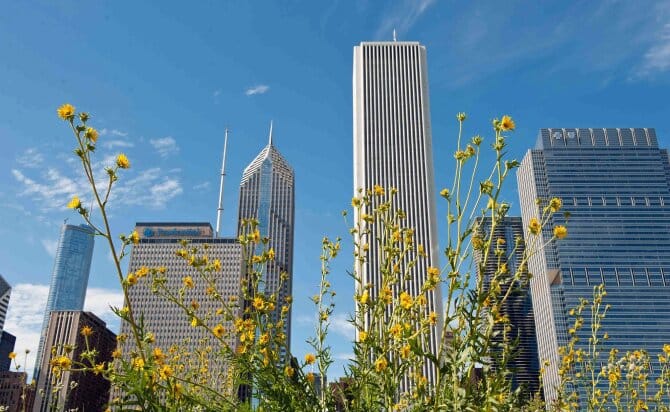
Through the CAC Summer Scholars program, educators will investigate the skyscraper as a physical and cultural concept, with new themes every day. A combination of selected humanities readings, field studies and lively lectures by scholars will lead participants—and in turn, their students—to a deeper understanding of the role of tall buildings in the history of American urbanization.


Lorem ipsum dolor sit amet, consectetur adipiscing elit. Praesent eget risus vitae massa semper aliquam quis mattis quam. Morbi vitae tortor tempus, placerat leo et, suscipit lectus.
Lorem ipsum dolor sit amet, consectetur adipiscing elit. Praesent eget risus vitae massa semper aliquam quis mattis quam. Morbi vitae tortor tempus, placerat leo et, suscipit lectus.
Lorem ipsum dolor sit amet, consectetur adipiscing elit. Praesent eget risus vitae massa semper aliquam quis mattis quam. Morbi vitae tortor tempus, placerat leo et, suscipit lectus.
Lorem ipsum dolor sit amet, consectetur adipiscing elit. Praesent eget risus vitae massa semper aliquam quis mattis quam. Morbi vitae tortor tempus, placerat leo et, suscipit lectus.
Lorem ipsum dolor sit amet, consectetur adipiscing elit. Praesent eget risus vitae massa semper aliquam quis mattis quam. Morbi vitae tortor tempus, placerat leo et, suscipit lectus.
Lorem ipsum dolor sit amet, consectetur adipiscing elit. Praesent eget risus vitae massa semper aliquam quis mattis quam. Morbi vitae tortor tempus, placerat leo et, suscipit lectus.
Lorem ipsum dolor sit amet, consectetur adipiscing elit. Praesent eget risus vitae massa semper aliquam quis mattis quam. Morbi vitae tortor tempus, placerat leo et, suscipit lectus.
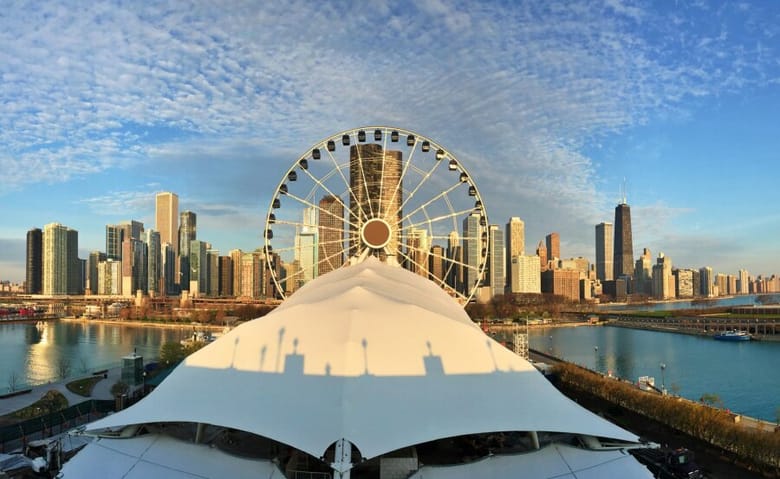
Teachers selected to participate in the workshop will receive $1,300 in stipend money at the end of the session. Stipends are taxable.
Participants are required to attend all scheduled meetings and to engage fully as professionals in all project activities. Participants who do not complete the full tenure of the project will receive a reduced stipend.
At the end of the workshop, participants will be asked to provide an assessment of their workshop experience, especially in terms of its value to their personal and professional development. These confidential online evaluations will become a part of the project’s grant file.

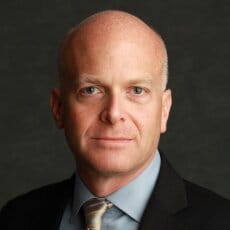
Thomas Leslie, AIA is a registered architect and the Pickard Chilton Professor in Architecture at Iowa State University. There, he teaches graduate level design studios and courses in building technology and the history of technology. In 2013, he was awarded the Rome Prize in Historic Preservation and Conservation to research the work of Pier Luigi Nervi, Italy's best-known postwar engineer. Leslie is the author of Chicago Skyscrapers: 1871–1934 (University of Illinois Press, 2013). His lecture will explore the competing interests and struggles, technological advances, and politics that produced a new built landscape in 19th-century Chicago.


Thomas Leslie, AIA is a registered architect and the Pickard Chilton Professor in Architecture at Iowa State University. There, he teaches graduate level design studios and courses in building technology and the history of technology. In 2013, he was awarded the Rome Prize in Historic Preservation and Conservation to research the work of Pier Luigi Nervi, Italy's best-known postwar engineer. Leslie is the author of Chicago Skyscrapers: 1871–1934 (University of Illinois Press, 2013). His lecture will explore the competing interests and struggles, technological advances, and politics that produced a new built landscape in 19th-century Chicago.


Thomas Leslie, AIA is a registered architect and the Pickard Chilton Professor in Architecture at Iowa State University. There, he teaches graduate level design studios and courses in building technology and the history of technology. In 2013, he was awarded the Rome Prize in Historic Preservation and Conservation to research the work of Pier Luigi Nervi, Italy's best-known postwar engineer. Leslie is the author of Chicago Skyscrapers: 1871–1934 (University of Illinois Press, 2013). His lecture will explore the competing interests and struggles, technological advances, and politics that produced a new built landscape in 19th-century Chicago.


Thomas Leslie, AIA is a registered architect and the Pickard Chilton Professor in Architecture at Iowa State University. There, he teaches graduate level design studios and courses in building technology and the history of technology. In 2013, he was awarded the Rome Prize in Historic Preservation and Conservation to research the work of Pier Luigi Nervi, Italy's best-known postwar engineer. Leslie is the author of Chicago Skyscrapers: 1871–1934 (University of Illinois Press, 2013). His lecture will explore the competing interests and struggles, technological advances, and politics that produced a new built landscape in 19th-century Chicago.


Thomas Leslie, AIA is a registered architect and the Pickard Chilton Professor in Architecture at Iowa State University. There, he teaches graduate level design studios and courses in building technology and the history of technology. In 2013, he was awarded the Rome Prize in Historic Preservation and Conservation to research the work of Pier Luigi Nervi, Italy's best-known postwar engineer. Leslie is the author of Chicago Skyscrapers: 1871–1934 (University of Illinois Press, 2013). His lecture will explore the competing interests and struggles, technological advances, and politics that produced a new built landscape in 19th-century Chicago.


Thomas Leslie, AIA is a registered architect and the Pickard Chilton Professor in Architecture at Iowa State University. There, he teaches graduate level design studios and courses in building technology and the history of technology. In 2013, he was awarded the Rome Prize in Historic Preservation and Conservation to research the work of Pier Luigi Nervi, Italy's best-known postwar engineer. Leslie is the author of Chicago Skyscrapers: 1871–1934 (University of Illinois Press, 2013). His lecture will explore the competing interests and struggles, technological advances, and politics that produced a new built landscape in 19th-century Chicago.


Thomas Leslie, AIA is a registered architect and the Pickard Chilton Professor in Architecture at Iowa State University. There, he teaches graduate level design studios and courses in building technology and the history of technology. In 2013, he was awarded the Rome Prize in Historic Preservation and Conservation to research the work of Pier Luigi Nervi, Italy's best-known postwar engineer. Leslie is the author of Chicago Skyscrapers: 1871–1934 (University of Illinois Press, 2013). His lecture will explore the competing interests and struggles, technological advances, and politics that produced a new built landscape in 19th-century Chicago.


Thomas Leslie, AIA is a registered architect and the Pickard Chilton Professor in Architecture at Iowa State University. There, he teaches graduate level design studios and courses in building technology and the history of technology. In 2013, he was awarded the Rome Prize in Historic Preservation and Conservation to research the work of Pier Luigi Nervi, Italy's best-known postwar engineer. Leslie is the author of Chicago Skyscrapers: 1871–1934 (University of Illinois Press, 2013). His lecture will explore the competing interests and struggles, technological advances, and politics that produced a new built landscape in 19th-century Chicago.


Thomas Leslie, AIA is a registered architect and the Pickard Chilton Professor in Architecture at Iowa State University. There, he teaches graduate level design studios and courses in building technology and the history of technology. In 2013, he was awarded the Rome Prize in Historic Preservation and Conservation to research the work of Pier Luigi Nervi, Italy's best-known postwar engineer. Leslie is the author of Chicago Skyscrapers: 1871–1934 (University of Illinois Press, 2013). His lecture will explore the competing interests and struggles, technological advances, and politics that produced a new built landscape in 19th-century Chicago.

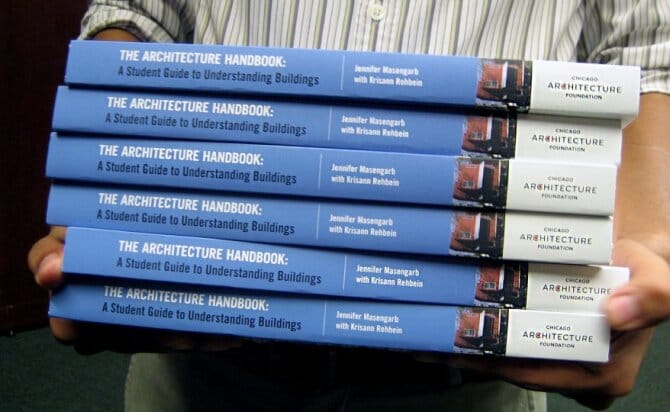
Six weeks prior to the workshop, we’ll share selected readings via an online learning management platform. We strongly recommend that you complete all the readings prior to the start of your workshop. The readings support the six major themes and include primary sources as well as pieces written by poets, architects, critics and scholars.


During the workshop, you will receive additional reading materials from lecturers. You will also receive a copy of the CAC’s Schoolyards to Skylines: Teaching with Chicago’s Amazing Architecture, The Architecture Handbook: A Student Guide to Understanding Buildings and the graphic novel No Small Plans. These award-winning resource books are designed to help teachers use architecture as a dynamic tool for teaching social sciences, language arts, science, mathematics and the fine and visual arts. We will be incorporating several of the book activities into the workshop.
Throughout the week, we will offer opportunities to meet with fellow participants, workshop staff and our master teachers to begin to develop teaching activities. On our final day together, you will participate in grade-based group discussions and full-group discussions then present your curriculum project ideas to the group. Once you have completed the workshop, you will submit a summary of your project and a reflective essay.
We are interested in the impact of this workshop on your teaching, so we will be contacting you again six months after the completion of the workshop to ask you about its impact on your teaching as well as on your students’ engagement with the subject.
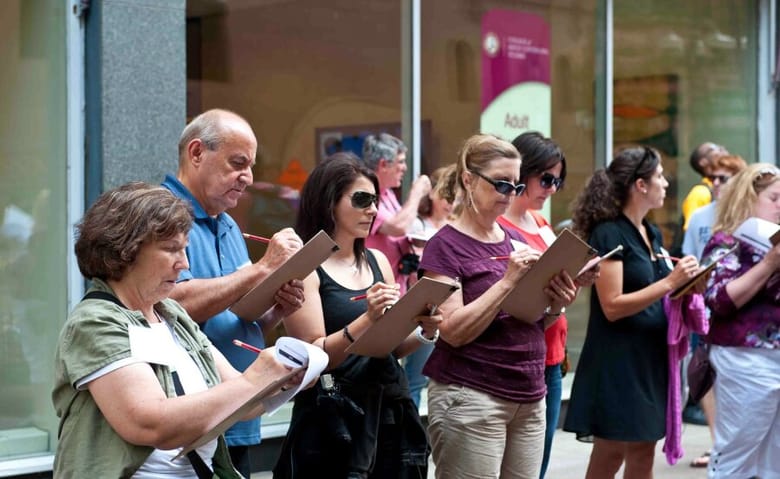
Prior to completing your application, please carefully review and consider what is expected in terms of residence and attendance, reading and writing requirements and overall participation.
We have designed each day's instruction to include a mix of lectures, discussions, virtual tours and collaborative activities. You should be prepared to participate in full-day sessions, which will include a combination of virtual sessions and self-guided fieldwork. We consider the activity level for this workshop to be moderate.
In addition to general questions about yourself, your work as an educator and the students you serve, you must also respond to the following short-answer questions
Once you have accepted an offer to attend any NEH-supported Summer Program (NEH Landmarks Workshop, NEH Summer Seminar, or NEH Summer Institute), you may not withdraw in order to accept an offer from another program.
A selection committee will read and evaluate all properly completed applications. Special consideration is given to the likelihood that an applicant will benefit professionally and personally from the workshop experience. It is important, therefore, to address the following in your submitted application
While recent participants are eligible to apply, selection committees are asked to give first consideration to applicants who have not participated in an NEH-supported seminar, institute, or workshop. Additionally, preference is given to applicants who would significantly contribute to the diversity of the workshop. Five (5) workshop spaces may be reserved for teachers who are new to the profession (teaching for five years or less).
Endowment programs do not discriminate on the basis of race, color, religion, sex, national origin, disability, age, or sexual orientation. For further information, write to NEH Equal Opportunity Officer, 400 Seventh Street, S.W., Washington, D.C. 20506. TDD: 202/606-8282 (for the hearing impaired only).
Lorem ipsum dolor sit amet, consectetur adipiscing elit. Praesent eget risus vitae massa semper aliquam quis mattis quam.